At Fair Trade USA™, we believe that all farmers deserve a fair price for their harvest and that every worker deserves safe working conditions and a living income. We envision a world where businesses value purpose alongside profit, and where consumers can easily choose and afford Fair Trade Certified™ products. We are proud of delivering over $1 billion in financial impact to communities around the globe, while recognizing that we are still a long way from achieving the world we envision. To turn this vision into reality, Fair Trade USA is investing in a strategic, impact-driven innovation plan to make Fair Trade accessible to all producers, workers, businesses, and consumers, and dramatically scale impact for farmers, fishers, and workers worldwide: Fair Trade for All!
Building On 25 Years of Impact
For years, the Fair Trade Certified program has driven innovation through our rigorous standards, Fair Trade Community Development Funds, and minimum price guarantees. These mechanisms have been critical to protecting workers, driving more financial stability, and enabling communities to make life-changing investments. As impactful as these strategies have been, they are not enough on their own to eradicate poverty and transform global supply chains. To accelerate our impact, we need a more expansive approach that brings more producers and supply chains into the program, significantly increases the volume of products sold as Fair Trade Certified, makes Fair Trade products accessible to all consumers, and achieves our vision of fair and equitable global supply chains.
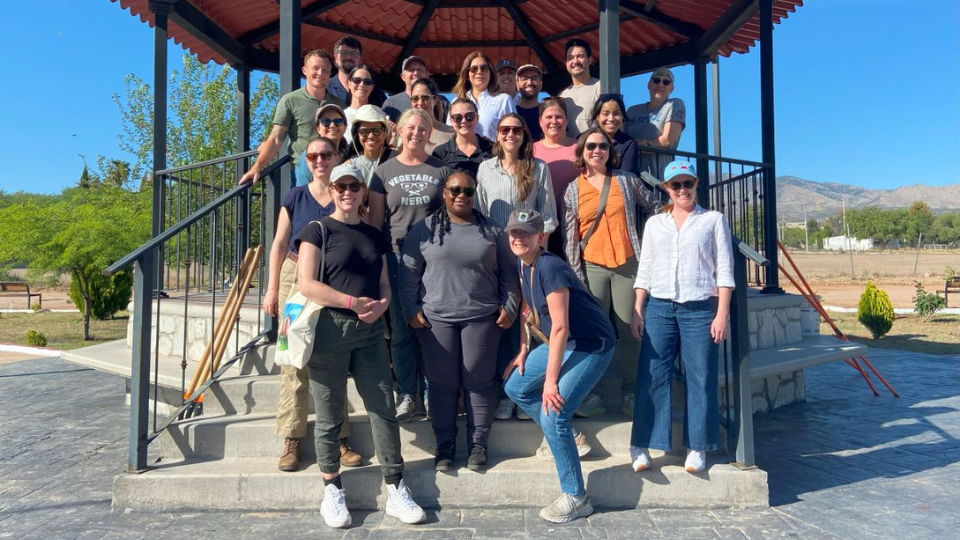
Fair Traders in Sonora, Mexico, visiting a park established by Wholesum using Fair Trade Community Development Funds.
Impact-Driven Innovation: Strategic Priorities for the Next Era of Fair Trade Certified
Fair Trade USA’s new holistic, long-term strategic approach aims to revolutionize the Fair Trade Certified program by focusing on five critical areas of innovation:
1. More Sold on Fair Trade Terms
Fair Trade USA aims to maximize the value of the Fair Trade Certified program for producers by ensuring that a greater volume of products produced on Fair Trade terms is actually sold as Fair Trade. While all products produced on a Fair Trade farm or in a factory or caught at sea is Fair Trade, there is often not enough market demand for 100% of it to be sold as Fair Trade Certified, so not delivering those benefits. In order to unlock those volumes not yet realizing the benefits of Fair Trade, we need to enhance the program’s business value for both producers and industry while generating more Community Development Funds. We will achieve this by incentivizing volume commitments from industry partners while simplifying processes, increasing consumer demand for Fair Trade Certified products, and delivering more ways to measure and articulate the impact of sourcing under the Fair Trade Certified system.
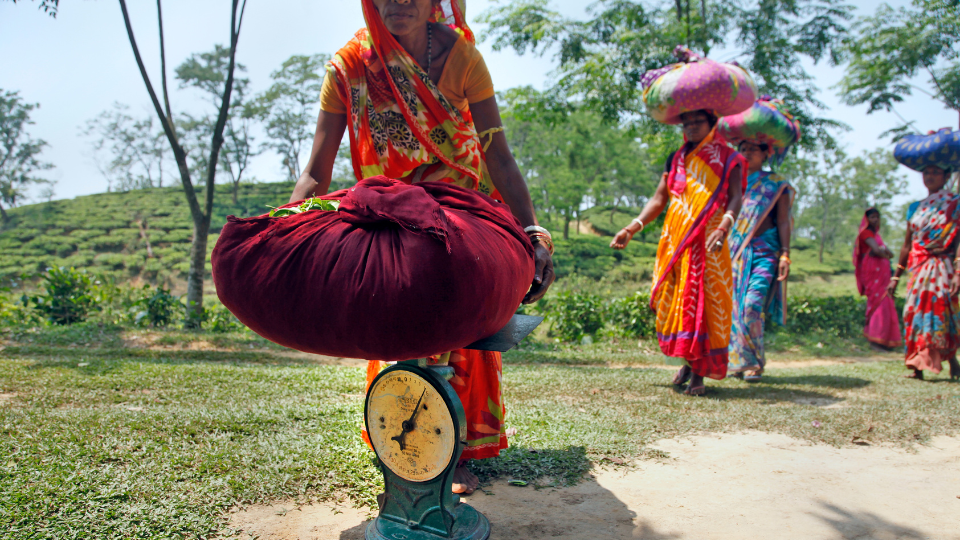
Tea leaves are weighed at the weighing station of Jalinga Tea Estate, a Fair Trade Certified tea garden at in Assam, India.
2. Dynamic Insights
Recognizing the value of real-time supply chain insights, we are partnering with technology leaders to enhance transparency and visibility across supply chains. Fair Trade USA is developing a cutting-edge business intelligence tool to provide dynamic supply chain information and sourcing insights, helping partners identify and mitigate risks, uncover opportunities, and make informed decisions. By comprehensively mapping supply chains, this tool will also help partners comply with new and emerging regulations like the European Deforestation Regulation (EUDR). These insights will also empower farmers, fishers, and factories to boost resilience and drive future innovations.
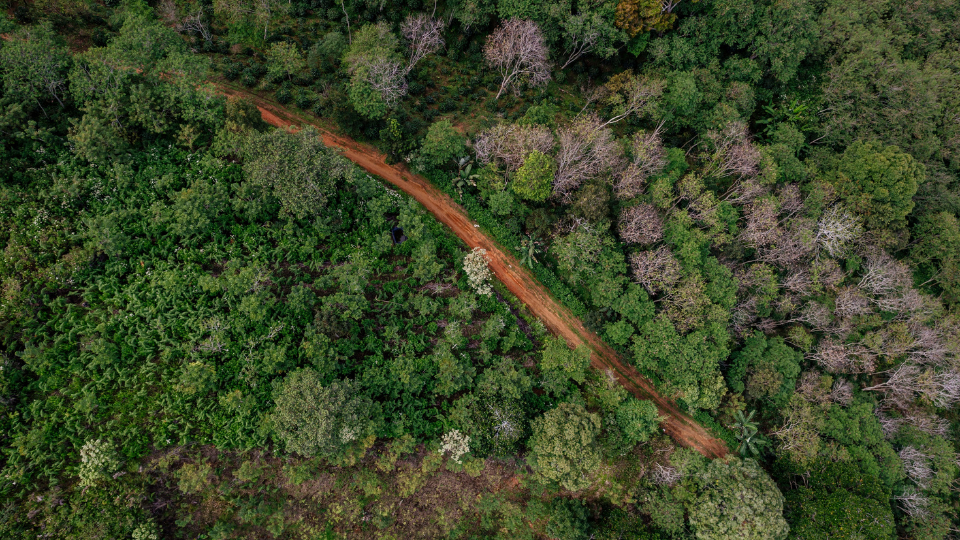
A view of a coffee farm from Bewang Village in the Gayo region of Aceh Province, Sumatra, Indonesia.
3. Strengthening Our Environmental Promise
With producer communities disproportionately impacted by climate change and its resulting environmental and economic challenges, Fair Trade USA recognizes that we cannot achieve social and economic sustainability without adapting to meet the increasing and dynamic needs for environmental sustainability. We are partnering with producers to enhance our environmental standards – from deforestation to biodiversity, water management, and more. We will leverage technology to ensure that new requirements are actionable and in compliance with environmental regulations like the EUDR, leading to tangible benefits for the environment and the communities we serve.
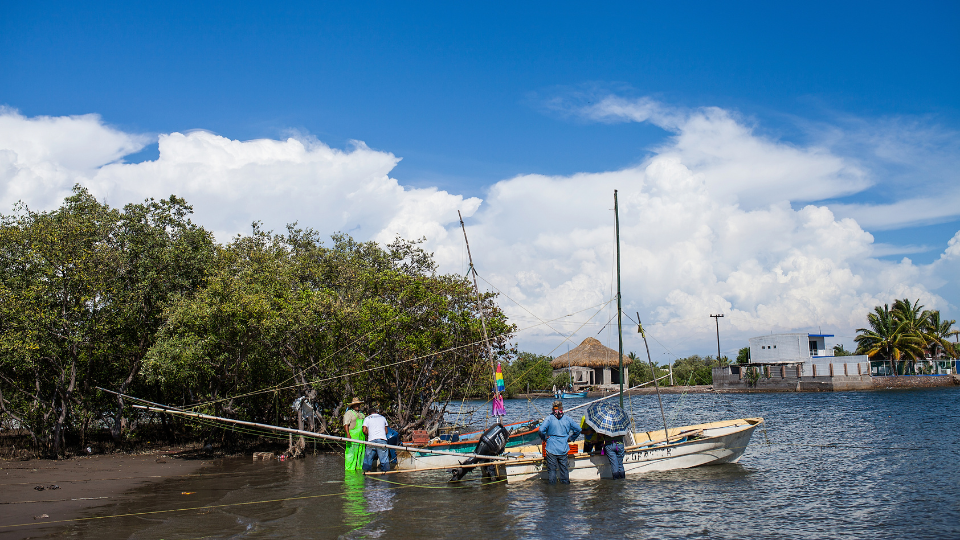
Fishermen arrive back at the docks and begin to unload their catch to bring to a Fair Trade Certified shrimp cooperative.
4. Deepen Consumer Engagement
U.S. consumers increasingly demand sustainably sourced and socially conscious products, a trend that has persisted through the pandemic, supply chain disruptions, and economic uncertainty. With consumers committed to shopping their values, we are working with our partners to make Fair Trade Certified products available in more online and brick-and-mortar retailers. We also continue to foster advocacy through our Fair Trade Campaigns program and will be working to expand our online consumer community to continue to engage, educate, and excite Fair Trade shoppers.

Shoppers examining the label on a product.
5. Innovating Our Standards and Assurance Model
Fair Trade USA believes that sustainability is built over time through a journey of learning and partnership. We further believe that our standards should work to support our producers rather than burdening them with more requirements and costs. We are transforming our certification model, evolving away from a pure binary, compliant vs. non-compliant system to an approach that nurtures continuous improvement and rewards high performance, without compromising on rigor. We will enhance our standards to incorporate progressive requirements, powered by information and data to empower producers to track and demonstrate progress.
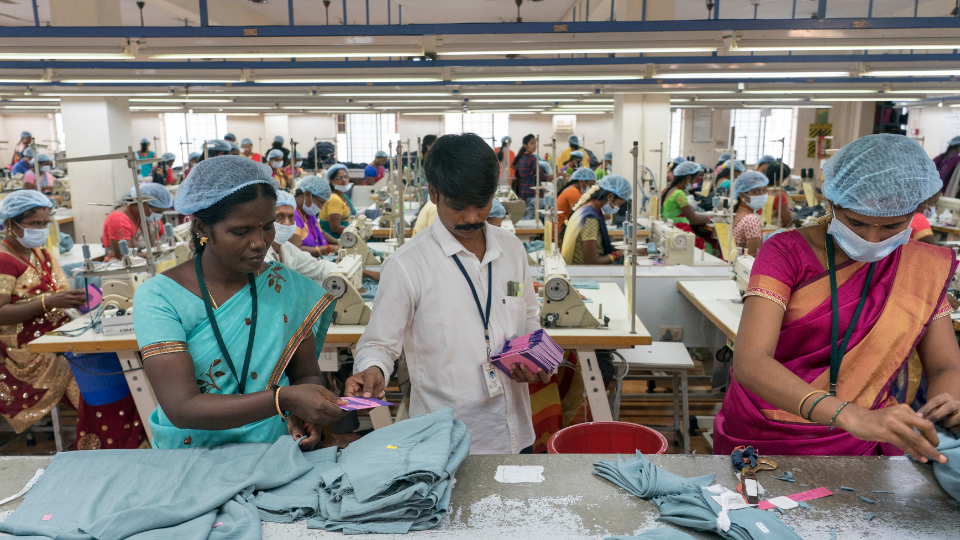
A manager at a Fair Trade Certified Factory distributes employee handbooks, detailing labor laws and Fair Trade principles.
A Fairer Future
Two years ago, Fair Trade USA celebrated $1 billion in financial impact delivered to farmers, workers, fishers, and communities over the past 25 years. This milestone is a testament to the power of the Fair Trade Certified model to change lives while being good for business. At the same time, we know that to truly transform supply chains around the world, Fair Trade Certified must continuously evolve to remain valuable in a rapidly changing world. With this new five-point approach to strategic innovation, we are confident that our team and our producer and business partners will build a Fair Trade program that meets the challenges of the next 25 years, accelerates impact, and creates a more equitable and sustainable future for all.
Fair Trade for Business
Are you a business interested in sourcing Fair Trade Certified? Learn more about what we certify and get started on your Fair Trade journey!